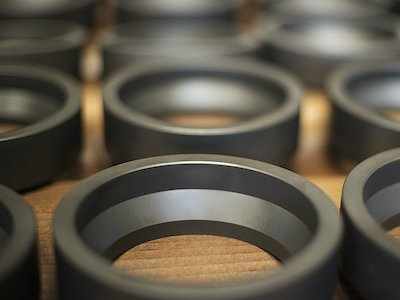Corrosion is costly. According to a recent NACE study, the global cost of corrosion on an annual basis is estimated at $2.5 trillion.
This estimate represents 3-4 percent of the global gross domestic product (GDP). The same percentage range can be applied to corrosion in the U.S. to arrive at billions of dollars in annual cost for companies operating domestically.
To help companies prevent considerable loss from the corrosion of metal parts, it’s important to understand why corrosion happens, the importance of the phosphate process for metal, and what types of anti-corrosion finishing treatments can help restore and strengthen critical industrial parts.
What is the Challenge with Corrosion?
Corrosion occurs when a metal gradually deteriorates because of a chemical or electrochemical reaction that occurs in the environment.
Corrosion can affect metal parts that are exposed to extreme temperatures, bacteria, water, and a large amount of stress.
For example, industrial parts used in subsea environments for oil and gas are exposed to high volumes of water that can easily lead to corrosion. Subsea corrosion is a serious consideration in the construction and management of parts to ensure the integrity of the part.
The ideal solution to create corrosion resistance and to protect the integrity of parts used in highly corrosive environments is the phosphate process for metal.
Why the Phosphate Process for Metal?
The phosphate process achieves a chemical alteration of the surface of a part, with the intent of creating corrosion resistance. The phosphate process for metal actually creates a new substance through a chemical reaction.
Parts are either bathed in phosphatizing chemicals or the chemicals are sprayed onto the metal to create the chemical reaction. The solution applied to the metal is composed of four parts: detergents, metal phosphates (zinc or manganese-phosphate), phosphoric acid, or additional agents such as reaction catalysts.
The metal phosphates react with the surface of the part to form the corrosion-resistant phosphate coating.
During the first reaction, iron comes into contact with the phosphoric acid, causing acid pickling. Iron is oxidized and hydrogen ions are separated from the phosphoric acid to form hydrogen gas. Some of the oxidized iron sloughs off or dissolves.
Then, during the second reaction, the zinc phosphates are deposited onto the substrate of the part to form the conversion coating.
What Finishing Treatments Support the Phosphate Process?
The primary finishing treatment used to support the phosphate process for metal is Phosphatizing.
Phosphatizing
The phosphatizing finishing treatment helps prepare metal or steel pieces for painting or coating, helping prevent corrosion.
Phosphatizing differs from traditional painting or coating because the surface of the metal is chemically changed to a new substance. This is important because the new coating will not chip or scratch, ensuring that the base material is not vulnerable to corrosion and wear.
This process is particularly useful to generate cost savings because hidden parts, springs, and bearings can be phosphatized to provide critical support for equipment. In fact, our company can service these small, yet important parts, all the way up to very large parts 25-35 feet in length.
Utilize Our Finishing Treatments to Prevent Corrosion
We understand the importance of maintaining critical parts that are used in harsh conditions. The phosphate process for metal is the right choice to prevent costly corrosion and to materially alter parts to increase usability and lifespan.
We offer Phosphatizing at our facility in Texas.
– Specific to Phosphatizing, we can provide this service in the field to quickly and efficiently treat parts to prevent corrosion.
To discuss our metal finishing treatments, contact us through our website, call 281-449-6559, or email info@superiorshotpeening.com to let us know your specific needs.

